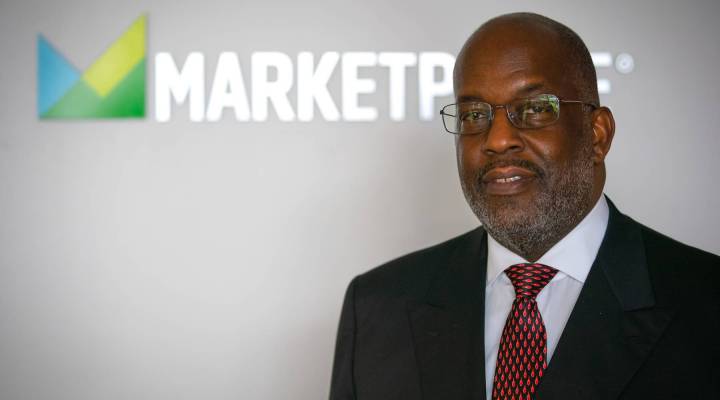
Kaiser Permanente’s CEO on how the mission of health care is changing
Kaiser Permanente’s CEO on how the mission of health care is changing

The American health care industry isn’t without its challenges. The Affordable Care Act has been on the verge of repeal, and costs can fluctuate like the stock market. Despite turmoil in the past year, enrollment for health plans through the ACA is open until Dec. 15. For Kaiser Permanente, one of the country’s largest insurance providers and hospital networks, balancing cost and care is one the industry’s biggest hurdles. Kaiser’s Chairman and CEO Bernard Tyson stopped by to talk about these challenges and how they’re helping the industry evolve. The following is an edited transcript of his conversation with Marketplace host Kai Ryssdal.
Ryssdal: Do I have it right that you wanted to work in hospitals, not necessarily as a doctor, but work in hospitals since you were a kid?
Tyson: Yes, actually I wanted to be a doctor. Yes.
Ryssdal: What is it about hospitals that is attractive to you?
Tyson: The whole mission of what a hospital does, that it’s there to take care of people in need. And I think the thing that fascinates me still about hospitals is that you have the whole continuum of life going on inside of the four walls of a hospital.
Ryssdal: Given where we are today with health care and the national debate, how worried are you that people don’t understand the health care economy in this country?
Tyson: I think people are learning more about it as the burden of the high cost of care is passed on to people. There are two parts to the affordability that I think about all the time: the affordability of coverage and the affordability of care.
Ryssdal: Help me out then, because what’s the difference?
Tyson: Well, you think about the affordability of coverage. A lot of that has to do with how much of the cost you shift to different funders, right? Which means that I may find something that I can pay that’s less expensive for the coverage. But then when I need care, now all of a sudden I discover what it means to have a $5,000 deductible, then I can’t afford to get that care. There’s a lot of stuff that goes into the calculation of health care costs.
Ryssdal: Do you think it’s solvable, this dilemma of coverage in care and cost?
Tyson: Absolutely.
Ryssdal: Have you called people in Washington?
Tyson: I think anyone who’s really been thinking about this a lot would come in and say, “No, there are more things that we can do to create more efficiencies and effectiveness in the health care industry.” There are many people working on that. I mean, obviously Kaiser Permanente has been working on it for years.
Ryssdal: Why isn’t it being done? Why isn’t it changing?
Tyson: It’s evolving. I mean, the center gravity of health care is still the hospital setting. I think as more people are paying out of pocket, they’re asking the harder questions of the industry: What are the alternatives? Why am I taking this? How else can I get what I need? And rightfully so they’re asking the right questions.
Ryssdal: To Kaiser Permanente then and what you are doing. You are a data guy from way back. Your first job in a hospital was a data analyst, Kaiser Permanente does a lot of localized coverage. You look at it by ZIP code, you have special projects doing a lot of cities, one of which is Baltimore. I want you to tell me about what Kaiser Permanente is doing in Baltimore with barbershops and beauty salons.
Tyson: You know, we don’t just think about when you get sick, we’re here for you. We think what are the determinants of your health that we can predict now based on many factors, one of which is where you live. We also now have data that shows in populations different health outcomes: high blood pressure, heart disease, asthma, all these kinds of illnesses. And so, we have gone into barbershops. In another community, we might do barbershops and churches. And we go into the trusted environments to talk about health and health care.
Ryssdal: Because you have to convince folks that they need to be met, right, that’s the deal?
Tyson: Yes.
Ryssdal: This is not a boring time to be in health care in this economy. But what is the trajectory of your industry, the hospital-based health care industry in this economy? Are we going to see lower costs as you’ve been talking about? Are we going to see people being able to get more care as they ask these questions that you and I have talked about?
Tyson: You’re going to continue to see the health care industry evolve. You’re going to continue to see the hospitals playing a critical role but not the central role.
Ryssdal: Is that a good thing?
Tyson: Absolutely. Because it’s all about the right care and the right setting.
There’s a lot happening in the world. Through it all, Marketplace is here for you.
You rely on Marketplace to break down the world’s events and tell you how it affects you in a fact-based, approachable way. We rely on your financial support to keep making that possible.
Your donation today powers the independent journalism that you rely on. For just $5/month, you can help sustain Marketplace so we can keep reporting on the things that matter to you.











